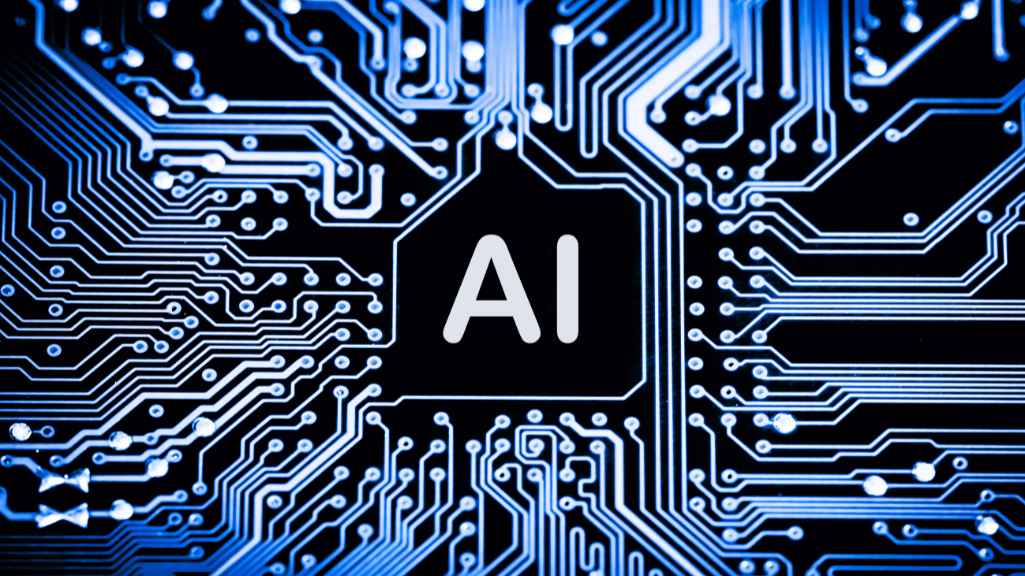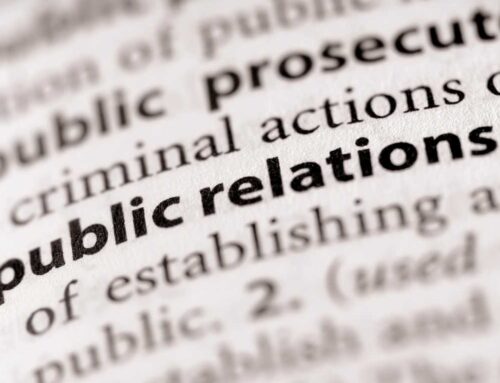Picture this: a busy law firm buzzing with activity, where lawyers are knee-deep in legal papers and court documents. Now, imagine a suggestion pops up—what if we bring in a smart computer to help us out? It could speed things up, make decisions easier, and basically, supercharge our work. Sounds good, right? But, here’s the twist: a young lawyer in the corner asks a vital question – what about doing this the right way?
In the world of law, where technology meets courtrooms, the use of artificial intelligence (AI) is growing. Lawyers are turning to AI for things like research and managing cases. But, here’s the thing – as we dive into this tech wave, we can’t ignore the big question: is it ethical? This blog is all about exploring the ethical side of using AI in law, especially looking at what big legal groups (bar associations) say about it. It’s like finding the rulebook for playing fair with AI in the legal world.
Imagine legal worlds colliding with computer brains. Figuring out what’s right and fair in this mix is a big deal. Let’s see how the legal experts guide us on playing the AI game in law.
Understanding the Implications of AI

What’s this big deal about ethics when it comes to AI in law? Think of it like setting the ground rules for a fair game. In simple terms, AI ethics in law means deciding what’s right and wrong when we let computers help us make legal decisions.
Now, what makes lawyers scratch their heads? Well, there’s this thing called bias. It’s like having a favorite but unfair referee. When computers learn from past data, they might pick up on old biases. Imagine if the referee always favored one team, that wouldn’t be fair, right? So, lawyers are figuring out how to make sure the computer doesn’t play favorites.
Transparency is another buzzword. Imagine playing a game, but you can’t see the rules. Not cool, right? Lawyers want to make sure the rules of AI are crystal clear. If a computer makes a decision, they want to know how it came up with that answer. It’s like asking the computer, “Why did you say that?” and getting a clear answer.
So, in the legal world, it’s not just about using cool tech; it’s about using it in a way that’s fair and square. Because, in the end, the game of law needs fair players, whether human or computer.
Understanding AI ethics in law is like making sure everyone plays by the rules. No bias, clear decisions – it’s about making AI a fair teammate in the legal game.
Bar Associations and AI Ethics
In the rapidly advancing landscape of legal technology, the spotlight turns to the pivotal role played by bar associations in charting the course for responsible AI implementation. These associations, such as the esteemed American Bar Association (ABA) and their counterparts globally, serve as beacons of guidance in navigating the intricate intersection of artificial intelligence and legal ethics.
Bar associations, being stalwarts of the legal community, actively engage in understanding the transformative impact of AI technologies. Prominent entities like the ABA dedicate resources and expertise to scrutinize how AI is reshaping legal processes. This goes beyond a mere acknowledgment of technological trends; it involves a comprehensive exploration of AI’s implications on legal ethics and professional conduct.
The Role of Bar Associations in Providing Guidance on AI Ethics
The pivotal role of bar associations extends beyond passive observation. These organizations are dynamic participants, taking a proactive stance in providing concrete guidance to legal practitioners. They meticulously analyze the ethical challenges posed by AI, offering nuanced recommendations that legal professionals can integrate into their practices. This guidance is not just a set of abstract principles; it’s a roadmap for navigating the complexities of AI while upholding ethical standards.
Importance of Legal Standards in Shaping Responsible AI Use
The significance of bar association guidance lies in the establishment of legal standards for the conscientious use of AI. These standards serve as a safeguard against potential ethical pitfalls and guide lawyers in leveraging technology responsibly. By articulating clear expectations and ethical boundaries, bar associations contribute to creating a level playing field where AI enhances legal processes without compromising the core principles of fairness, justice, and integrity.In essence, the role of bar associations transcends that of mere advisors. They are architects of a framework that ensures the harmonious integration of AI into legal practice, fostering an environment where technological advancements align with the ethical imperatives of the legal profession.
Bar Association Guidance
As legal professionals navigate the intricate web of AI integration, bar associations offer a compass in the form of common ethical themes. These principles serve as pillars, upholding the integrity of the legal profession even in the face of technological advancement.
Analysis of Common Ethical Principles Emphasized by Bar Associations
Bar associations, through their ethical guidelines, consistently underscore certain fundamental principles. These include but are not limited to confidentiality, competence, and the duty of zealous representation. When it comes to AI, these principles are extended and adapted to ensure that technology aligns seamlessly with the ethical fabric of legal practice. Examining these common ethical touchpoints provides practitioners with a solid foundation for evaluating the ethical implications of AI tools.
Addressing Bias and Fairness in AI Algorithms
One of the critical fronts where bar associations are intensifying their focus is the battle against bias in AI algorithms. Like vigilant referees, they emphasize the importance of fairness, urging legal professionals to scrutinize and mitigate biases embedded in AI systems. It’s not just about avoiding favoritism; it’s about ensuring that AI decisions are impartial, treating each case and individual equitably. Bar associations provide guidelines on how to detect, address, and prevent biases, fostering a legal landscape where justice is blind, even in the age of AI.
Transparency and Accountability in AI Decision-Making
The call for transparency echoes loudly in the guidance provided by bar associations. In a world where decisions are increasingly influenced by algorithms, transparency becomes paramount. Bar associations advocate for clear explanations of how AI reaches its conclusions. This isn’t just a technical requirement; it’s a cornerstone of accountability. Legal practitioners are urged to understand and communicate the reasoning behind AI decisions to maintain the trust of clients and uphold the ethical duty of transparency.
AI Ethics Opinions – Bar Associations’ Guidance on AI Implementation
While these ethical frameworks aim to steer legal professionals toward responsible AI use, they are not immune to scrutiny and the complexities posed by the rapidly evolving landscape of technology.
Identifying Challenges in Implementing Bar Association Guidance on AI Ethics
Implementing AI ethics guidelines in the legal domain encounters a spectrum of challenges. Technical intricacies in integrating AI systems into existing legal workflows can pose hurdles. The need for continuous education and training to equip legal professionals with the skills to navigate AI responsibly is another critical challenge. Balancing the demand for efficiency with the ethical imperative requires a delicate equilibrium that must be continually refined as technology advances.
Criticisms or Controversies Surrounding Specific Bar Association Stances
Bar association stances on AI ethics are not exempt from critique. Some may argue that the guidelines are too restrictive, hindering the adoption of innovative technologies that could enhance legal processes. Conversely, others may contend that the guidance falls short in addressing emerging ethical dilemmas posed by cutting-edge AI applications. Criticisms, whether from legal practitioners, technologists, or ethicists, play a crucial role in refining and fortifying the ethical guidelines to ensure they are robust and adaptable.
Ongoing Debates Within the Legal Community Regarding AI Ethics
Within the legal community, spirited debates on AI ethics are ongoing. Discussions encompass the appropriate level of AI involvement in decision-making, concerns about the potential biases embedded in algorithms, and the broader ethical responsibilities of legal professionals. These debates are not mere intellectual exercises but serve as arenas for shaping the evolution of AI ethics in the legal field. They provide a platform for diverse voices to contribute to the ongoing refinement of ethical guidelines and their alignment with the ever-changing technological landscape.
How Legal Practitioners Can Navigate and Apply Bar Association Guidance on AI Ethics
The guidance provided by bar associations isn’t a rulebook collecting dust on a shelf; it’s a compass for legal practitioners. Understanding this guidance and its practical implications involves proactive engagement. Legal professionals can benefit from regular training sessions, workshops, and ongoing education to stay abreast of evolving AI ethics standards. Actively seeking out and participating in discussions within professional networks further enhances the practical understanding of how to apply these ethical guidelines in diverse legal scenarios.
Integrating Ethical Considerations into Day-to-Day Legal Practice
Ethics isn’t a checkbox; it’s an integral part of every legal action. From client interactions to case management, legal professionals can infuse ethical considerations into their daily routines. When utilizing AI tools, consciously evaluating the potential impact on fairness, transparency, and bias becomes a habit. Regular self-audits and team discussions can create an environment where ethical considerations seamlessly integrate into the fabric of day-to-day legal practice.
Resources and Tools Available to Legal Professionals for Ethical AI Implementation
Bar associations don’t just provide guidelines; they often equip legal professionals with resources and tools to facilitate ethical AI implementation. Accessing these resources, which may include model policies, checklists, and case studies, empowers legal practitioners to navigate the complexities of AI with confidence. Additionally, leveraging AI auditing tools and ethical AI frameworks tailored for the legal profession can be instrumental in ensuring adherence to ethical guidelines.
Summing Up
From the foundational principles highlighted by bar associations to the examination of real-world case studies, it is evident that ethical considerations are not abstract ideals but concrete guides for action. The challenges faced in implementing these guidelines underscore the dynamic nature of the relationship between law and technology, requiring continuous adaptation.
Critiques and controversies surrounding bar association stances add depth to the discourse, fostering a nuanced understanding of the delicate balance between technological innovation and ethical responsibility. Ongoing debates within the legal community echo the commitment to refining ethical frameworks in the face of technological advancements.





